#CarDealerships
AutoNation Cutting Roughly 3,500 Jobs
After furloughing staff in response to the coronavirus pandemic, AutoNation has gradually allowed employees to return back to work. Half of the 7,000 people asked to take it easy in April won’t be coming back at all, however.
The automotive retailer has decided to permanently cut 3,500 jobs so it can focus on its bottom line and what it has unsettlingly called “the new normal” — a term frequently used to rationalize unsavory actions taken during the health crisis.
With customers unable to leave their homes to purchase cars, it’s to be expected that America’s largest automotive retailer would need to engage in some light restructuring. It also happens to have the best excuse imaginable for nuking a large portion of its workforce. Back in April, when the AutoNation was furloughing employees, it received nearly $95 million in federal small-business funds via the Payment Protection Program (PPP). A subset of anonymous staff members were said to have leaked the details to the media after deciding the firm was taking cash allocated for smaller outfits.
Outrage ensued and the company sheepishly returned the money.
Auto Sales Officially Considered 'Essential Service' by U.S. Government
Updated social distancing guidance released by the Department of Homeland Security’s Cybersecurity and Infrastructure Security Agency (CISA) on Friday indicates the automotive industry is now an essential business.
Version 3.0 (for those keeping count) of what constitutes “essential critical infrastructure workers” added a number of job descriptions as the federal government mulls how to restart the U.S. economy. Among them is pretty much every job related to automotive manufacturing and sales.
Reeling From Global Health Crisis, Dealers Embrace Online Sales
Auto dealers and manufacturers around the globe have spent the past several years examining the usefulness of digital car sales, but the practice hasn’t been embraced as warmly in the United States, where state franchise laws often prohibit direct sales from automakers to anybody but a licensed auto dealer. Critics say this allowed retailers to become middlemen that customers are forced to haggle, while advocates explain that the system promotes U.S. jobs and provides a local resource for those needing repairs.
Neither are incorrect, yet dealerships have continued to buck online sales, even after manufacturers attempted to work with them on various pilot programs.
With COVID-19 keeping a large portion of the American population at home, dealers are revisiting online sales as a way to cut their losses. Digital transactions now look to be a necessity if shops hope to survive a prolonged pandemic. While many see this as a temporary measure, once the genie is out of the bottle, he’s difficult to put back inside… and may be far less benevolent than we’d like — even if we’re desperately in need of one of those wishes.
Report: U.S. Dealerships Shrinking in Number, Throughput Down for 2019
The annual Automotive Franchise Activity Report asserts that the number of new-car dealerships in the United States has shrunk for the first time since 2013. The difference is marginal when viewed from a national perspective, but could support prior theories that larger dealer networks are consolidating while smaller, less competitive shops are being forced out of the market. The report claims the total number of storefronts fell from 18,294 in 2018 to 18,195 at the start of 2020. Dealership throughput was similarly down, decreasing by eight units from 2018 to 940.
While not particularly alarming, the figures do seem to mirror national population trends when placed under a microscope. The states that lost the highest number of showrooms tended to be regions that had the most trouble preventing people from moving.
Changing Trajectory: In Giving Lincoln Its Own Space, Can Ford Combat the Wandering Eye?
My father has historically been a Ford man. Despite numerous forays into Chevrolet, Chrysler, Volkswagen and Toyota, he has always returned to the Blue Oval when the time came to purchase a keeper. Other nameplates came and went, receiving slightly less attention, but there was always at least one well-maintained Ford in the garage. As a result, I became familiar with dealerships using the suffix “Ford Lincoln Mercury” at a very young age.
For me, it was an opportunity to ogle the fancier sedans my father claimed didn’t make financial sense. “It’s the same car,” he would always say. “This one just costs more.”
When you’re eight and have nothing to distract yourself with other than the swizzle sticks you stole from the coffee area, fatherly advice has a way of sinking in. I’ve often wondered why automakers would even dare place their premium offerings so close to their less-expensive models. But times have changed.
Volvo's Subscription Service May Breach California's Franchise Law
It’s no secret that Volvo dealers aren’t keen on the factory subscription plan. Last December, the California New Car Dealers Association even asked the manufacturer to end Care By Volvo on the grounds that it was taking business away from storefronts. The automaker responded by saying the service had proven popular with consumers, attracting new customers to the brand while reassuring dealers that version 2.0 of the subscription plan had been approved by the Volvo Retailer Advisory Board and would give shops more to do.
Rather than take the wait-and-see approach, the California New Car Dealers Association petitioned the state’s New Motor Vehicle Board. Last week, the group unanimously voted to direct the state’s DMV to investigate Care by Volvo and four claims that the service violates provisions of the California vehicle code — potentially leading to disciplinary actions.
Ask Bark: Can They Actually Do This to Me?
When it comes to buying new cars, I don’t have much patience. When I bought my Focus RS in 2016, I spent less than an hour doing the whole deal, including actually deciding what car I wanted to buy. Got a blank check approval from my bank, spitballed some ideas with my older brother and my good friend Bozi, and then put down a deposit on a car at a dealership about a thousand miles away. But there was one time when I tried to have patience, and was sorely disappointed.
Eleven years ago, I put down a $5,000 deposit and placed an order for a BMW 135i with my local BMW dealer. It was the launch year for the ill-fated 1 Series in the states, and I wanted to have one of the very first Ones to hit our shores. I ordered a very stripped down version — black, stick shift, cloth seats, no roof. After about 12 weeks, the dealer called to let me know that my car had arrived. Well, a car had arrived… but certainly not mine.
This example was an automatic. But that wasn’t the only thing they got wrong. They added somewhere in the neighborhood of $5k to the sticker, including nearly every option, even a red leather interior. Imagine my disappointment and frustration with the dealer, who had recycled sales people a couple of times since my order and couldn’t seem to track down anything about it, not even the original order sheet.
I asked for my money back, which they reluctantly gave me, and I ended up buying a Pontiac G8 GT instead — not a bad trade. But not everybody who goes through the ordering process is so fortunate. Click the jump for a question from our friend Andy about his experience in ordering his own custom German whip.
Ask Bark: Did I Throw Away The Key To A New Car?
If there’s one thing I loved about spending time in the offices of General Managers and dealership principals, it was hearing about the harebrained schemes they had to bring customers into the dealership. GMs see an average of 80 or more vendors every single month — there’s always a new piece of software, a new way to buy inventory, even a new way to wash the windows. Invariably, due to some combination of pressure to meet unrealistic sales goals and the attractiveness of the sales rep, managers would fall for something that would make me shake my rather large head in disbelief.
The tough part was always maintaining a straight face when they told me about their plans. One of my fondest memories was listening to a GM explain that he had canceled all of his third party advertisers and ordered two Wacky Waving Inflatable Arm Flailing Tubemen. I wasn’t entirely surprised to see that the store was out of business 90 days later.
But one of my all-time, tried and true favorites is the “gypsy sale.” Click the jump to see our friend Greg’s question about these direct mail pieces and whether or not they actually work.
Dealer Advisor: Prepare for the Worst or Be Destroyed Over the Next Two Decades
Dealership advisory firm Presidio Group has painted a very bleak picture for its clients. With analysts predicting a downturn in auto sales, the company recommends dealers establish a robust 20-year plan that will enable them to perform in the new climate or get out of the business entirely.
Brodie Cobb, founder of Presidio Group, cites a glut of studies claiming dealerships will struggle as manufacturers shift into mobility companies and alternative modes of transportation are more broadly encouraged.
“We’re not particularly pleased that the world is changing the way it is. We would rather have it stay the same, because owning dealerships is a very nice return and profitable business that we enjoy very much,” Cobb told Automotive News in an interview. “So when we talk about this, it hurts us, too. We, too, need to understand the future, form a plan and not just put our head in the sand and hope it goes away.”
Dealerships to Receive $335 Million In Payments Over Supplier Price-fixing Scheme
Roughly 8,000 U.S. dealers will share in a $335 million payday resulting from a colossal 2010 antitrust investigation. The issue? Suppliers were involved in a widespread price-fixing scheme that lasted decades, and nobody noticed until the FBI raided the offices of Yazaki North America Inc., Denso International America Inc. and Tokai Rika Group North America.
In the end, 65 individuals and 47 companies were charged by the Justice Department — resulting in over $2.9 billion in fines and jail time for a swath of fresh white-collar criminals.
However, none of that money made it to manufacturers, dealers, parts retailers, or consumers. Those players had to resort to filing civil suits in federal court against the companies. In 2012, the multitude of claims were consolidated and transferred to Judge Marianne Battani and the U.S. District Court in Detroit. Over $1 billion has been set aside for affected parties, with around $335 million of the sum going to dealerships.
Mazda Plans U.S. Dealer Network Makeover, Still Wants 2-percent Market Share (and More CX-5s)
“We have been working more closely with our dealers to evolve their businesses and through that process,” Mazda tells Automotive News, “some new dealers have chosen to begin working with us, while others have made the decision to leave the Mazda brand.”
Mazda has been open about its goal of earning 2 percent of the U.S. market while being forthright about the brand’s intentions to do so only on solid ground. This means fewer discounts, a premium vibe, and the kind of higher margins that make dealers happy.
On the dealer side of the equation, Mazda now wants those dealers to improve. In some cases, that means a new location. In others, a new exterior design is necessary. More thoroughly trained staff members is key, as well. But it’ll be slow going. Of Mazda’s roughly 600 dealers, the brand acknowledges that some have forsaken the automaker, though Mazda won’t say how many. Since the efforts to revamp dealers began last year, only 26 have been upgraded so far. By the end of the decade, Mazda believes roughly one-sixth of its network will have undergone a remodel.
In the meantime, Mazda is getting further away from reaching its 2-percent goal.
Dealers (Maybe) Using Service Department Revenue to Offset Sales Downturn
For a variety of reasons (the post-recession binge finally cooling off is the biggest), new-car sales are down in the United States. One would expect that would hurt the revenue of new-car dealerships. Not so much, it turns out, as dealers have found other ways to generate revenue. Or at least that’s what a Bloomberg report says. But there are caveats that suggest the Bloomberg piece may be generalizing. In other words, maybe some shops are seeing more revenue from more work, but other shops aren’t, even as they get busier, due to other factors.
Traditionally, new-car dealerships have always generated revenue and profit from their service and parts departments – and those departments outshine sales at many stores. So it’s not surprising to see dealers turning to a reliable profit center when sales slump.
New York Dealership to Pay $298,000 After Scamming Customers With Phony VIN Etching
Like all companies, auto dealerships are in the business of making money and dealer-installed options are frequently a good way to markup a vehicle’s final price. While that’s great for shops, new cars don’t really need rustproofing or fabric protection. Of course, that doesn’t keep salesmen from occasionally tacking those services on for a few hundred dollars extra though.
One optional extra you actually may want to take advantage of is VIN etching. While this is something you can do at home for cheap, most dealers will gladly do it for a significantly larger fee. But it doesn’t do you any good if the store doesn’t actually follow through with the service and charges you for it anyway — which is exactly what happened at a Nissan dealership in New York.
Nissan of New Rochelle was caught charging customers for an unwanted VIN etching service that they frequently didn’t even apply to cars. Now the dealer has agreed to pay nearly 300 customers more than a quarter of a million dollars in restitution and issue a public apology for its shady practices.
New Plan: Hyundai Motor America Wants Separate Genesis Showrooms ASAP
“We do in fact have to expedite our process of separating our brands.”
– Genesis Motors General Manager Erwin Raphael
From the start, Hyundai Motor America’s plans to launch its upmarket Genesis brand inside Hyundai showrooms was easy to question. Do consumers want the link between a $68,100 Genesis G90 and a $14,745 Hyundai Accent to be so obvious?
Of course not. But affording Genesis a mere corner of certain Hyundai showrooms wasn’t the only problem — Genesis general manager Erwin Raphael also had issues early on with the number of Hyundai dealers signed up to sell the Genesis brand.
“We may see that (350) figure go down,” Raphael said in November 2016, only a few months after the brand began selling cars in America. “I think it is too high.”
Fast forward to August 2017 and Hyundai’s plan to eventually separate the Genesis brand with standalone showrooms, perhaps in 2020, is about to be pulled way forward. “For this brand to really survive and thrive,” Raphael tells Automotive News, “and for us to develop the culture within ourselves and within our dealer network to support and take care of these customers, we do in fact have to expedite our process of separating our brands.”
So what happens to all of those Hyundai dealers who recently spent thousands renovating showrooms to include Genesis studios?
Is Carvana's Ex-Con Co-Founder to Blame for Its Fading IPO?
Carvana, the company we previously razzed for its innocuous multistory automotive contrivances, has suddenly found itself facing some legitimate problems. The car dealer is now famous for two things: vehicular vending machines and a majority shareholder with criminal ties to a major savings and loan scandal — who also happens to be the father of the business’ CEO and co-founder.
The organization is also facing a share price that has dipped 40 percent since its April 27 IPO. However, that can likely be blamed on an over-saturated used car market. Secondhand cars are incredibly affordable at the moment so, if you wanted to support Carvana or any other used vehicle vendor, now would be a good time. You just have to be alright with doing business with Ernie Garcia II, the ex-con investors are likely going to blame if the share price doesn’t bounce back.



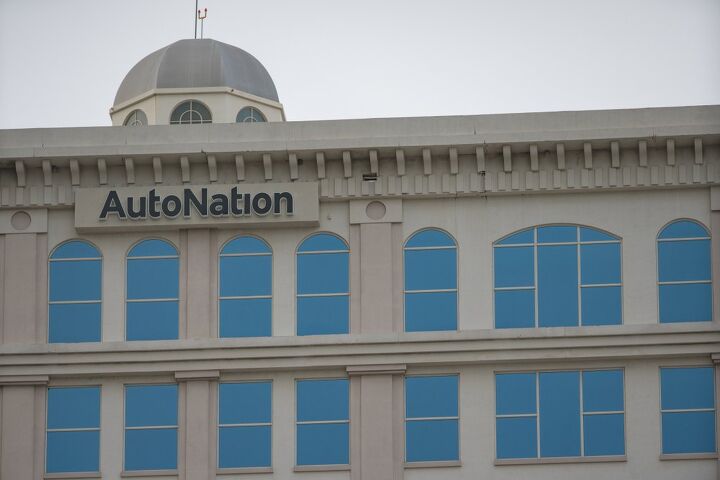
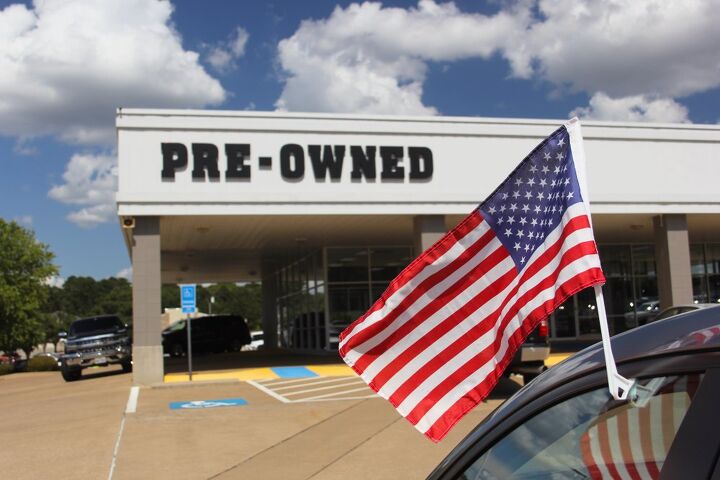



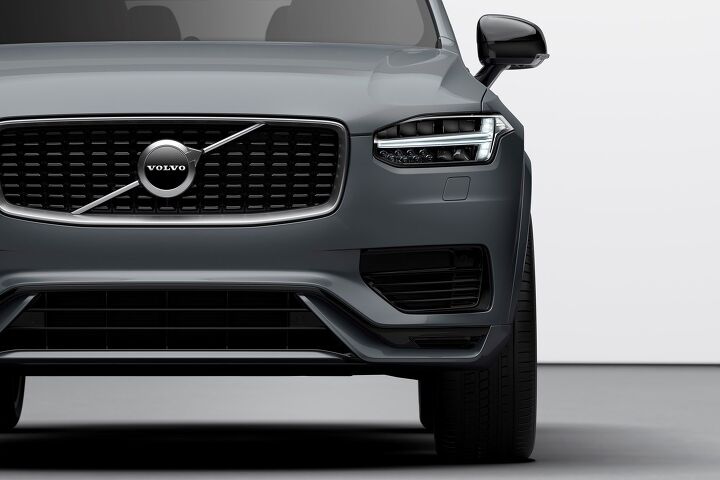


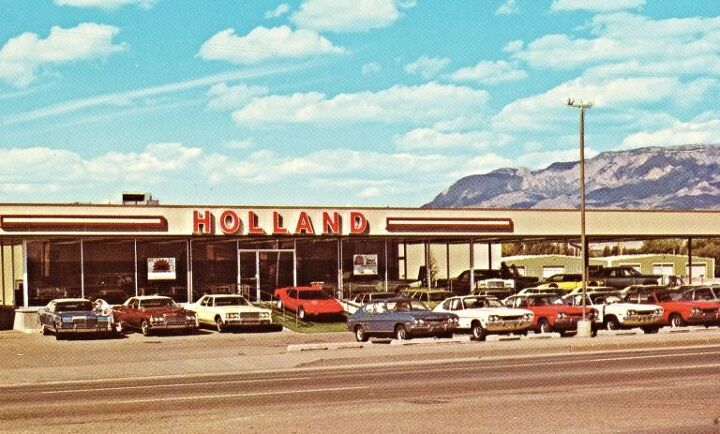

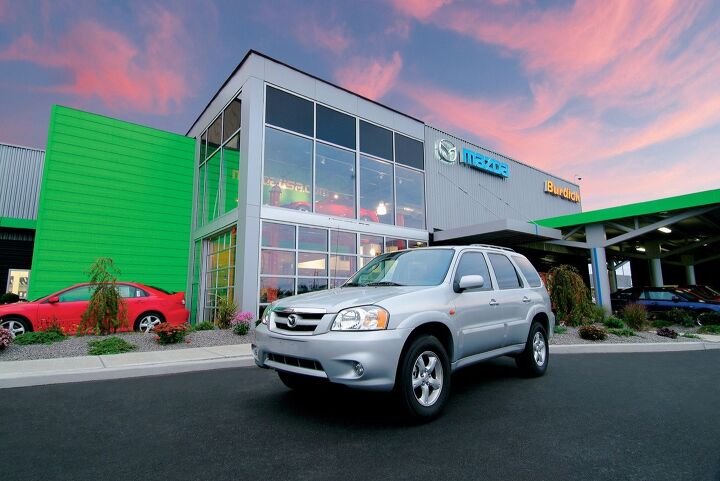
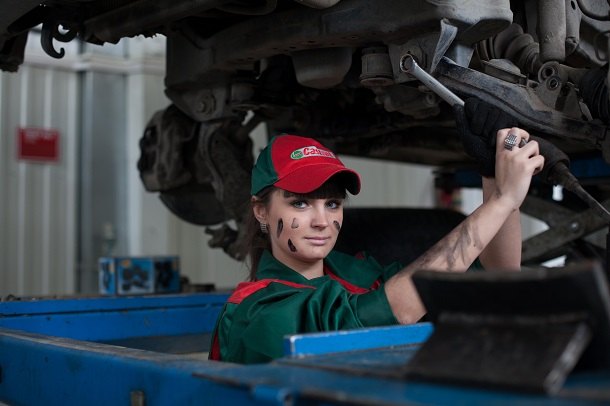

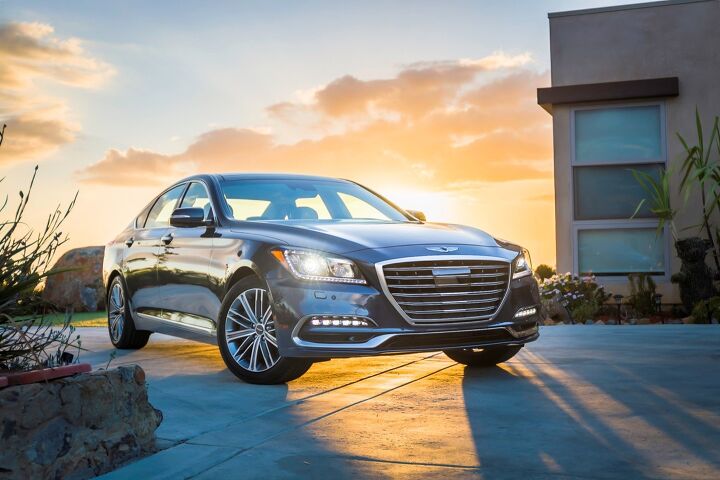













Recent Comments